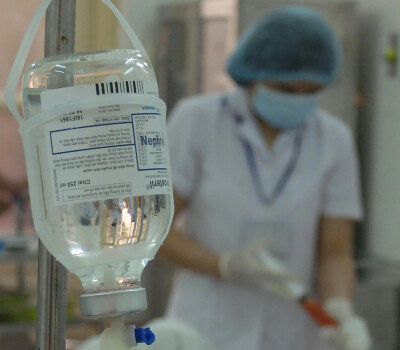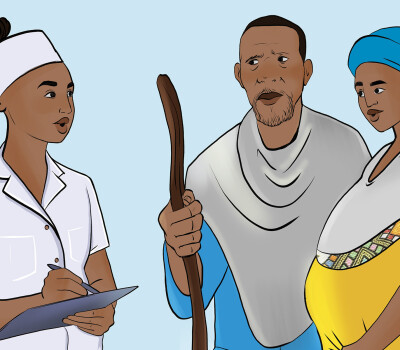Lessons learned from the 64th ITM Colloquium: Navigating the Global Landscape of Disease Burden Amidst Climate Change Challenges

This document summarises the key highlights and insights from the 64th Institute of Tropical Medicine Antwerp (ITM) Colloquium, held in Kathmandu, Nepal, from 21 to 23 November 2023. Themed "Understanding the Global Landscape of Disease Burden in the Context of Climate Change," the colloquium serves as a critical forerunner to the UN Climate Change 28th Conference of Parties (COP28) in Dubai, United Arab Emirates.
From Kathmandu to COP28
This year, COP28 has committed to a presidency-level health programme. This includes an official Health Day on 3 December, a health ministerial meeting, and various side events on climate change and health facilitated by different organisations. This health-centred focus has garnered attention from global health organisations; signifying an essential nexus between climate action and public health.
Against the backdrop of COP28’s health emphasis, the 64th ITM Colloquium was held in Nepal, one of the countries most vulnerable to climate change. In collaboration with the Nepal Health Research Council (NHRC), the event aimed to draw attention to the climate change impacts on health in the Global South. Notably, it stand as one of the first conferences in this region delving into the diverse consequences of climate change on human health.
Global Research Perspectives on Climate Change and Health
The inauguration of the Colloquium highlighted its national to global significance, with the presence of the Honourable Minister for Health and Population from the Government of Nepal, Mr Mohan Bahadur Basnet. The event also saw the participation of high-level officials from the Government of Nepal, WHO, UNICEF, Board members and officials of NHRC, as well as the attendance of high-level delegates from ITM and its Board of Governors, academicians, scientists, policy makers, programme managers and journalists. The scientific programme covered the broad spectrum of planetary health, exploring the impacts of climate change on infectious diseases, mental health, non-communicable diseases, and sexual, reproductive and child health. The discussions delved into national and global responses to address the health impacts of climate change. Gathering insights form a diverse and global research community and with a particular focus on the Global South, the colloquium aimed to contribute valuable knowledge to build climate-resilient health systems. The information gathered is pivotal for addressing the ongoing climate crisis and its profound implications for public health.
Opportunity for Action
This document provides policymakers and stakeholders with insights from a global research community on the crucial connection between climate change and health. The recommendations serve guide proactive measures for climate-resilient health systems. The ITM Colloquium’s contribute to building sustainable global health systems, advocating for collaborative efforts and informed decisions to create a healthier, climate-resilient world.
Addressing Climate Change and Health: 10 Key Recommendations for Policymakers
The climate crisis is not only an environmental issue; it is a public health crisis threatening the life on our planet, necessitating urgent transformative actions.
High-level political commitment is essential for a complete phase-out of fossil fuels and commitment to no new fossil fuel infrastructure. This aligns with the Paris Agreement, reducing emissions to prevent the acceleration of climate-induced threats to human health and well-being.
High-income countries should increase support for protecting vulnerable populations in low- and middle-income countries (LMIC) through the Green Climate Fund and Loss and Damage Fund, as committed in the COP. Ensuring easy access to funds for developing countries is crucial.
More research is needed to document and address the broader impacts of climate change on human health, considering the life course approach from fetus to the elderly. This is especially important in LMIC, which are most vulnerable to adverse impacts of climate change.
Capacity sharing with LMIC on climate change and health is critical. Including climate change and health courses in university education can play a crucial role in producing a health workforce equipped to address climate change.
People’s health should be at the centre of climate change negotiation, as reducing greenhouse gases and controlling air pollution has significant health co-benefits.
Building climate-resilient and low-carbon health systems should be a priority for all countries for addressing health risks of climate change.
International cooperation, collaboration, and networking are crucial for collectively addressing health risks associated with climate change.
Media engagement for awareness raising and community empowerment is vital for developing resilient communities and societies.
Synergy and transformative actions are necessary to scale up good practices addressing triple planetary crisis: climate change, air pollution and biodiversity loss.
Spread the word! Share this story on









